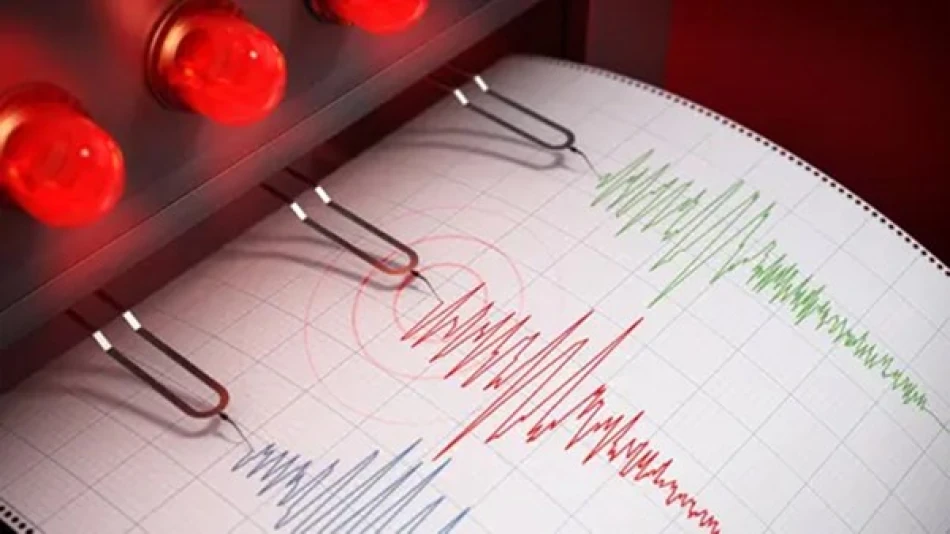
Earthquake Shakes Khor Fakkan with 2.0 Magnitude, According to UAE's National Center of Meteorology
Minor Earthquake Rattles UAE's Khor Fakkan as Regional Seismic Activity Continues
A 2.0 magnitude earthquake struck the coastal city of Khor Fakkan in the United Arab Emirates on August 5, 2025, at 8:35 PM local time, according to the UAE's National Center of Meteorology. While relatively minor, the tremor adds to a pattern of low-level seismic activity affecting the Arabian Peninsula, highlighting the region's position along active geological fault lines.
Understanding the Gulf's Seismic Landscape
The UAE sits in a seismically active zone influenced by the collision between the Arabian and Eurasian tectonic plates. Khor Fakkan, located on the UAE's eastern coast facing the Gulf of Oman, lies particularly close to the Zagros Mountains fault system that extends from Iran into the Arabian Peninsula.
Earthquakes of 2.0 magnitude are typically imperceptible to most residents and cause no structural damage. However, their detection by the National Meteorological Center's seismic monitoring network demonstrates the country's growing investment in geological surveillance infrastructure.
Regional Context and Preparedness
Growing Seismic Awareness
The Gulf region has experienced increased seismic monitoring in recent years, partly driven by Iran's more frequent earthquake activity to the north. Countries like the UAE and Saudi Arabia have expanded their geological monitoring capabilities as part of broader infrastructure resilience strategies.
Unlike earthquake-prone regions such as Japan or California, the Arabian Peninsula historically experiences lower-magnitude tremors. However, the region's rapid urban development and critical energy infrastructure make even minor seismic events worth tracking closely.
Economic and Infrastructure Implications
For the UAE's economy, particularly its massive construction and real estate sectors, consistent seismic monitoring provides valuable data for building codes and urban planning. Khor Fakkan serves as a crucial port city connecting the UAE to Asian markets, making geological stability assessments important for long-term infrastructure investments.
The emirate's position as a regional financial hub also means that accurate seismic data helps maintain investor confidence in major projects, from Dubai's expanding skyline to Abu Dhabi's industrial zones.
Broader Implications for Gulf States
As Gulf nations diversify their economies beyond oil, they're investing heavily in earthquake preparedness and monitoring systems. The UAE's approach mirrors similar efforts in Saudi Arabia's NEOM project and Qatar's World Cup infrastructure development, where geological stability assessments have become standard practice.
While a 2.0 magnitude earthquake poses no immediate threat, its detection and prompt reporting reflect the UAE's commitment to transparent disaster preparedness—a crucial factor for a country hosting millions of expatriate residents and serving as a regional business hub.
Most Viewed News

 Layla Al Mansoori
Layla Al Mansoori






